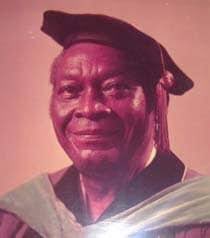This revisit was spurned by an editorial playlist that was advertised to me on Spotify (topical, in more ways than one). The music from the playlist is good; yes, I am a classic soul respecter. The promotion of the playlist made sense, given the upcoming month.
I don’t think the same could be said of the film, however. Even watching it at the time, as a young uninitiated normie, I remember finding it odd.
Obama was still in his first term. We had been sold the notion of a golden age of American racial recompense.
In some undeniably symbolic way, many felt a bill had been repaid.
A film pushed through the festival circuit with a clear sentiment of “so far to go” seemed like an activist gaslight. As we have come to learn, the tenor of the conversation was being nudged.
Looking at the release date, I can’t help but see a parallel between the suspicious uptick in the media focus on “Black Lives Matter” during election cycles. This seems oddly close to the start of the 2012 Presidential campaign, as well as the early-2012 Trayvon Martin hysteria.
Without going too deep into conspiratorial speculation, it is interesting to note that the film was co-produced by Danny Glover’s film company Louverture Films. Here’s Danny Glover with the film’s director, Göran Olsson (Danny Glover is the black guy).
It’s not a secret that Danny Glover is very politically active in left-wing causes. The film company is named for the leader of the Haitian revolution (Tariq Nasheed check). Their stated goal is to create “independent films of historical relevance [and] social purpose…”
Oh, and David Rockefeller Jr.’s wife is a “principal partner,” so there’s that.
Origin of the film: Swedish Television shot footage covering the Civil Rights Movement in 60s/70s. It was stored and never released, until being pieced together for this movie some 40 years later. The footage alone gives the impression of a dispassionate outsider view.
The narration is mostly musicians/rappers, with the inclusion of some prominent black intellectuals. The film shuns in-depth historical analysis, in favor of meandering “hot takes” from people like Questlove. He won an ugly-looking Swedish award called a Guldbagge for the music.
Somewhat stunning to see even NPR (left) and the New York Times (right) admit that the history was essentially absent.
Here are some excerpts I found particularly eyebrow-raising. First, Talib Kweli claims that shortly after 9/11, he was listening to Stokely Carmichael speeches while preparing for a record. At the airport, he was approached by “the FBI, CIA and TSA” over this:
My hunch is that this is another instance of Talib’s narcissistic victimology getting the better of him (where have I seen another narcissist with a similar name…). I don’t think this ever actually happened.
As the film’s poster reveals, Angela Davis is a fixture throughout. Here she describes when she was arrested over the murder of Judge Harold Haley, as the gun used was registered in her name. She says she was targeted to “make a point” and that “it didn’t matter who she was…”:
To avoid too many excursions within this thread, I would suggest you read
@Steve_Sailer’s piece on the incident. Needless to say, she is being quite coy in saying this was simply an instance of “the whole apparatus of the state…set up against [her]…”:
https://t.co/e9kdKpeYEv
Here is activist lawyer William Kuntsler of Chicago Seven fame, discussing the Attica Prison riot and invoking the language we have all come to know quite well - “as a white, middle-class citizen…”:
Even if you haven’t looked deeply into the Attica Prison riot, reflect on the absurdity of his last statement. People who want to “abolish prisons” truly think that maximum security prisoners, simply by virtue of inversion, are “much more decent and honorable” than any guard.
Without inviting a tangential debate on penal system reform and any legitimate grievances, I want you to understand that you don’t have to just buy this. Provocative activist hyperbole, presented without nuance, does not merit a response with nuance. You don’t owe it to them.
A very young Farrakhan, stating that we are in a “literal hell in America.” Funny, I find myself agreeing, but not for the reasons he thinks:
Black Power Mixtape is then a fitting tribute for Black History Month - aimless naval-gazing, with a tinge of ulterior political cynicism coursing throughout.
I’d give it a 5/10; the analog film was aesthetically pleasing, and I can’t deny that soundtrack.









































